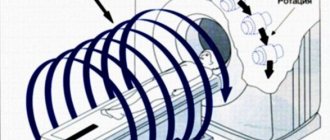Quick Transition Treatment of Benign Paroxysmal Positional Vertigo
Benign paroxysmal positional vertigo (BPPV) is one of the most common diseases of the peripheral vestibular system.
The main symptom is a sudden, short-term attack of systemic dizziness when the head position changes.
The incidence of BPPV varies, ranging from 11 to 64 cases per 100,000 population. Women get sick 2-3 times more often than men. The risk of developing BPPV increases after 35 years of age, with the peak incidence occurring at 60 years of age.
In the structure of all causes of dizziness, BPPV ranks first and accounts for 18-25% of all cases of dizziness.
About 90% of BPPV cases are idiopathic (the cause remains unknown). Only in 10% of cases are it possible to identify predisposing factors for the development of the disease: head injuries, whiplash injury or surgery on the bones of the skull, dental implantation, diseases of the middle and inner ear, their surgical treatment, long-term bed rest.
Anatomy
The inner ear is represented by a labyrinth located in the temporal bone. The labyrinth consists of three semicircular canals (anterior, posterior, horizontal) and the cochlea. The semicircular canals are located in three mutually perpendicular planes: the horizontal (HPC) is located at an angle of 30° to the horizontal plane, and the anterior (APC) and posterior (PPC) are located at an angle of 45° to the sagittal plane. The hairs of the sensory cells of the otolith receptor form a network that is immersed in a jelly-like mass containing otoliths - crystals of phosphate and calcium carbonate, which together form the otolith membrane.
According to one theory of the occurrence of BPPV, an attack of dizziness occurs when the otoliths separate from the membrane and enter the lumen of one or more semicircular canals. During the displacement of otoliths in the lumen of the semicircular canal, under the influence of gravity when turning the head, movement of the endolymph occurs, which leads to excitation of nerve endings, the appearance of nystagmus (involuntary oscillatory movement of the eyes) and dizziness.
With BPPV, each of the semicircular canals can be affected, and in some cases several canals at once.
Most often (85-90% of cases) BPPV of the posterior semicircular canal is detected - due to its anatomical location relative to the action of gravity, in 5% of cases the GPC is affected, in 1% of cases - the PPC.
Causes of dizziness
- Overeating after a long break, leaving a strict diet or fasting.
- Food allergies can be caused by food additives, which are abundant in most foods, as well as sweets or protein foods.
- Reaction to foods containing the amino acid tyramine - chocolate, gourmet cheeses, overripe fruits, marinades, citrus fruits.
- Hypovolemia is a decrease in blood volume in the body. This condition is characterized by constant thirst, weakness, rapid heartbeat, blue skin, and dizziness.
- Dumping syndrome is a pathological condition caused by a decrease in blood flow to the brain and heart, hyper- and hypoglycemia.
There are early and late dumping syndromes.
Symptoms of the disease
Patients complain of an attack of systemic (rotational) dizziness after changing the position of the head: turning the head from side to side in bed, getting out of bed, going to bed, throwing back the head when looking up, any sudden turns of the head. An attack of dizziness lasts about a minute and is most often not accompanied by other symptoms. Rarely do patients experience nausea, and even less often vomiting. In most cases, patients feel well between attacks.
Causes of morning dizziness
Unpleasant symptoms are a consequence of impaired blood circulation in various parts of the brain. Such changes are accompanied by a decrease in oxygen concentration in tissues. Neurons are sensitive to such changes, so weakness and disorientation develop. In some cases, dizziness in the morning is associated with a malfunction of the vestibular apparatus, for example, due to damage to the inner ear. A decrease or, on the contrary, a sharp increase in pressure in the body is also accompanied by similar symptoms. In medicine, it is customary to identify several main causes of discomfort after sleep, as well as with a sudden change in body position. They are associated both directly with a malfunction of the brain and with general metabolic disorders.
Hypoglycemia
Morning dizziness can be triggered by a decrease in blood sugar concentration. A similar problem is more often the cause of symptoms in a child, since in childhood the functions of the digestive organs are imperfect. For patients suffering from diabetes, discomfort after getting out of bed is one of the most common complaints. This is due to the inability to maintain glucose at a constant level. Dizziness goes away if you eat a piece of sweets. However, you should be careful not to provoke a sharp increase in the concentration of carbohydrate in the blood. If such a clinical picture appears in the morning, it is recommended to consult with your doctor.
Intracranial hypertension
Changes in pressure in the vessels of the head are always accompanied by unpleasant sensations. Often, such a cascade of reactions provokes intense pain. However, in some cases, a change in body position is accompanied by only slight disorientation. However, high intracranial pressure is rarely diagnosed in the morning. This condition is more often observed in the evening, as it is associated with overwork and stress. A distinctive feature is also the occurrence of nausea and vomiting due to the activation of the corresponding brain centers.
Orthostatic hypotension
Dizziness after sleep also occurs against the background of hypotension. A sharp decrease in pressure is associated both with a slowdown in metabolism during rest and with a change in body position. This condition in some cases leads to complete inability to move. Orthostatic hypotension is most often diagnosed in adolescence, in people with lesions of vascular structures, as well as in women during menstruation.
Intestinal upset, poisoning
Dizziness in the morning is not always associated with pathologies of the central nervous system. A similar disorder is also diagnosed in cases of dysfunction of the digestive system. Toxins accumulating in the body can lead to reflex irritation of the vomiting center, as well as dysfunction of the vestibular apparatus. With significant loss of fluid due to dyspeptic symptoms, the head may become dizzy due to dehydration, blood thickening and decreased blood pressure.
Toxicosis during pregnancy
Carrying a baby is a crucial period in a woman’s life. Despite all the joy from the upcoming birth of a child, expectant mothers face many problems. In the first trimester of pregnancy, most representatives of the fair sex suffer from toxicosis of varying severity. Symptoms of this condition include general weakness, dyspeptic symptoms, and sudden mood swings. This restructuring of the body’s functioning may also be the reason why a woman feels dizzy in the morning, which makes the expectant mother feel nauseous. Toxicosis is considered a normal variant and goes away on its own as the fetus develops. Doctors recommend balancing your diet and eliminating foods that can lead to indigestion and the development of unpleasant symptoms.
Osteochondrosis of the cervical spine
Pathologies of the blood supply to cerebral structures occur against the background of many diseases. Moreover, the cause of the development of the disorder in some cases is located outside the skull. Osteochondrosis of the neck often leads to compression of the arteries supplying the brain. Since a person moves very little during sleep and often takes a non-physiological position, after waking up a pressure drop occurs and the head feels dizzy. This is due to a sharp increase in vascular tone due to the onset of movement. In such cases, rapid changes in position should be avoided.
Benign paroxysmal vertigo
This pathology is often diagnosed in older people. Symptoms of the disorder can appear throughout the day, although the clinical picture reaches its greatest intensity in the morning. This is due to the significant load on the vestibular apparatus after waking up, when a person begins to actively move.
Diagnostics
The main method for diagnosing BPPV is to evaluate the results of positional tests, during which successive turns and tilts of the head are performed, which leads to the displacement of free otoliths, nystagmus appears and an attack of dizziness may occur. The most common test for diagnosing BPPV is the Dix-Hallpike test. The test is considered positive if the doctor detects a certain type of nystagmus. For each semicircular canal, its own diagnostic tests have been developed.
In typical cases, there are no difficulties in diagnosing BPPV, since nystagmus has strict specificity when performing positional maneuvers. If positional nystagmus and vertigo do not fall within the parameters expected with positional tests, and the disease is not treatable with positional maneuvers, a central origin of vertigo should be suspected and additional examination methods should be prescribed.
Differential diagnosis
Central vestibular disorders affecting the cerebellum and brain stem (stroke, transient ischemic attack, multiple sclerosis, tumors).
Vestibular migraine is usually accompanied by headache.
Vestibular neuronitis is a lesion of the vestibular ganglion, presumably of inflammatory origin. It manifests itself as an acute episode of dizziness, accompanied by a balance disorder with intact hearing.
Meniere's disease is a disease of the inner ear, manifested by a triad of symptoms: systemic dizziness, sensorineural hearing loss, and subjective ear noise.
Other factors
In addition to those described above, there are other factors that provoke symptoms. Possible causes range from simple lack of sleep to serious health problems. Triggers of dizziness:
- mechanical narrowing of nerve canals;
- cardiovascular diseases;
- metabolic disorders;
- hormonal changes;
- viral infections;
- head injuries;
- tumors.
As a rule, they are all pathological in nature and require attention and careful treatment.
Let's take a closer look at the most common factors:
Hypotension. Low pressure in the vessels supplying the brain deprives the organ of sufficient oxygen and nutrients. This condition has a certain effect on the fluid in the inner ear, which is responsible for maintaining balance. Therefore, the nervous system receives inadequate information about the position of the body in space.- Vegetative-vascular dystonia syndrome. Dizziness is combined with sleep disturbances, palpitations, headache, and a feeling of lack of air. All of these signs or only some of them may appear when the body position changes.
- Diseases of the inner ear, nasopharynx. Body temperature rises and blood pressure rises, which reduces blood flow to certain areas of the brain. Dizziness may worsen when lying down or tilting your head.
- Osteochondrosis. In the cervical spine, the vessels that supply blood to the inner ear are compressed. This is a common reason for feeling dizzy when you go to bed, try to get up, or suddenly turn or raise your head.
Spinal hernia in the cervical region. There is pain radiating to the shoulder, and the fingers go numb. If you lie on your back, your head begins to spin and your blood pressure rises. Changing body position causes a sensation reminiscent of intoxication.- Alcohol intoxication. Loss of balance occurs after drinking large amounts of alcohol. If you lie down, you feel more dizzy.
- Stress, lack of sleep, starvation. Mental and physical stress and nutrient deficiencies in the diet negatively affect the functioning of the vestibular apparatus and nervous system. When people go to bed under stress, they feel dizzy when their body position changes. Diets, dietary supplements, adaptogens, and sedatives help in these cases.
Treatment of BPPV
BPPV often goes away on its own before seeing a doctor. About 20-28% of patients with BPPV experience spontaneous resolution of symptoms within 1 month.
Therapeutic tactics involve using a certain sequence of head turns (repositioning maneuvers), during which the otoliths move from the affected canal back to the vestibule of the labyrinth.
If repositioning maneuvers are insufficiently effective, the patient may be additionally recommended to perform the necessary set of exercises at home.
Surgical treatment is used only when maneuvers are ineffective, when BPPV disables the patient.
According to various studies, the risk of BPPV recurrence is 15% during the first year and 37-50% over the next 5 years.
How is BPPV treated at the Rassvet clinic?
Since BPPV is a mechanical disease, its treatment is based solely on repositioning maneuvers. For severe nausea and vomiting, antiemetics may be prescribed.
We do not prescribe vascular therapy, homeopathic remedies or other medications and treatments (acupuncture, osteopathy) with unproven effectiveness to patients with BPPV.
Specific prevention of the disease has not yet been developed. The relationship between BPPV and vitamin D deficiency is currently being actively studied.
Author:
Chekaldina Elena Vladimirovna otorhinolaryngologist, Ph.D.
What to do
Single cases of dizziness after eating are not dangerous and do not require treatment.
If such a condition is associated with disordered eating, too long gaps between meals, you just need to adjust your diet, try to eat more often and in small portions.
In case of food allergies, it is necessary to identify and exclude from the diet foods that provoke an allergic reaction.
But dumping syndrome requires treatment from a gastroenterologist or abdominal surgeon.
For mild stages of the disease, treatment includes:
- taking medications that normalize digestive processes;
- diet and nutrition;
- elimination of symptoms of pathology;
- taking sedatives;
- physiotherapeutic procedures – electrical stimulation and electrosleep.
If this does not help, surgical treatment is used - gastric surgery.










